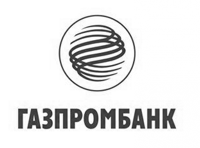News

ILAN RONEN PRESENTS "THE VISIT OF THE OLD LADY"
On November 16th the Maly Theatre will offer its audience a new production, «The Visit the Old Lady» based on the tragicomedy by Friedrich Dürrenmatt. The director of the play Ilan Ronen answered several questions about the upcoming premiere.
- When did you receive an offer to return to the Maly Theatre, after a 30-year break?
- The first meeting with the Artistic Director of the Maly Theatre Yuri Solomin took place last year, in September. He said that he would like me to come and direct the performance on the stage of the Maly Theatre. We have known each other for over 20 years, since 1990, when I was working on «Le Bourgeois Gentilhomme» by Molière. In 2012 I brought the production of the Habima Theatre, «Road to Damascus» by Israeli playwright Hillel Mitellpunkt, directed by me, within a framework of the International UTE Festival that took place at the Maly Theatre. Throughout these years, me and Yuri kept in touch. So then there was an official invitation to come and work on a new production. Recently, I left the post of artistic director of the Habima theatre, and now I have more free time and more flexible working in theatres around the world. During the discussion of possible productions, Yuri liked the idea of putting «The Visit of an Old Lady» the most.
- Are there any actors in this production who worked with you 27 years ago in «Le Bourgeois Gentilhomme»?
- Yes, four actors from the current production were already engaged in the production of «Le Bourgeois Gentilhomme» in 1990. Among them are Lyudmila Titova, Viktor Bunakov, Zinaida Andreeva and Boris Klyuev. I saw Lyudmila Titova in 2012, when I was in Moscow with the Habima theatre, she watched our performances. So for me this is a very exciting event - to come here after so many years and work with the same actors.
- How did the casting go?
- For me, the casting overall was quite a difficult process. In the Habima theatre, in which I had worked for 20 years, I knew all the actors, their strengths and weaknesses and their opportunities. In Moscow, casting took some time, but when I saw the artists all together on stage, I realized that it was the right choice. As I said, I worked with Lyudmila Titova before, and when her name came up in a conversation with Yuri, I was very happy. I heard about the acting skills of Vasiliy Bochkaryov, but before that I did not see him playing. And then I saw him on stage in the play «The Last Sacrifice», where he plays in a duet with Lyudmila. I also saw the chemistry and tension that exists between them in this performance. For my production, it was very important to show the love story of a man and a woman. In spite of other issues raised in this play, in the center of the story is the story of the first true love, a story about what an abandoned woman with a broken heart is capable of, who was betrayed due to cowardice and selfishness.
-Why is this play, written by Dürrenmatt in the 50s still relevant today?
-Look, I came to work at the Maly Theatre for the first time in 1990, and back then Moscow was a completely different city. Now everything has changed drastically. People have the opportunity and find easy ways to make money, they apply for bank loans without thinking about how they will give the money back. Even the mere fact of possessing money, obnubilates their minds and consciousness. The topics that were relevant decades and even centuries ago are relevant nowadays. Money is the power and might. Everything can be bought, including justice. The play raises the question of what the society is willing to pay for the material benefits.
-How do you find working with the actors of the Maly Theatre? Would you like to continue this collaboration?
- I work with professionals in my field, with real talents. And I hope that they are happy to solve the tasks that I set before them. It seems to me that I work somewhat different from other directors who have staged performances in the Maly Theatre. I work less with realism on stage. I prefer symbols, hidden hints. And that's what I'm trying to achieve with my actors. I have some ideas about putting on Shakespeare or Moliere next. I would like to continue this artistic dialogue with the Maly Theatre. At the moment I would most likely prefer to put on the classics. I would not want to voice a specific work, but I definitely see great opportunities for realizing my idea here.
-Can you feel the difference between the Russian actors and their colleagues from other countries?
-Sometimes it seems to me that I work with my company, and that I have long known all the actors. Yes, it is difficult sometimes, and at other times, on the contrary, quite easy. Habima is the oldest repertory theatre in Israel. Now it is celebrating its centenary. It was established by immigrants from Russia and the Stanislavsky system is more than known there. We are all students of this system, despite the fact that sometimes we are fighting against it. In addition, the Maly Theatre is a repertory theatre. In Europe only a few remained at the moment. In fact, in Russia, I feel at home. I worked with actors from Germany who are different from the Russian ones, I worked with actors from Israel. Israel is a melting pot, a multinational country, a real mixture of cultures and subcultures and traditions of various communities and generations. In Israel, for many people, Hebrew is not a native language. Russian culture in Israel has long-standing roots and all fields of culture are imbued with it - music, theatre, etc. During World War II, my mother had to flee from Poland to Siberia, to the refugee camp. She brought with her the memories and traditions that she witnessed. And so sometimes in Moscow, it seems to me that the Russian language is part of me, part of my biography, even though I do not know this language.
REFERENCE
Ilan Ronen (Israel) (former Artistic director of The Habima, the National Theatre of Israel, member of honour of the Union des Théâtres de l'Europe). Many performances staged by Ilan Ronen were honoured by professional awards. This is not his first production at the Maly Theatre. In 1990, an Israeli director was invited to stage «Le Bourgeois Gentilhomme» by Molière.

On November 16th the Maly Theatre will offer its audience a new production, «The Visit the Old Lady» based on the tragicomedy by Friedrich Dürrenmatt. The director of the play Ilan Ronen answered several questions about the upcoming premiere.
- When did you receive an offer to return to the Maly Theatre, after a 30-year break?
- The first meeting with the Artistic Director of the Maly Theatre Yuri Solomin took place last year, in September. He said that he would like me to come and direct the performance on the stage of the Maly Theatre. We have known each other for over 20 years, since 1990, when I was working on «Le Bourgeois Gentilhomme» by Molière. In 2012 I brought the production of the Habima Theatre, «Road to Damascus» by Israeli playwright Hillel Mitellpunkt, directed by me, within a framework of the International UTE Festival that took place at the Maly Theatre. Throughout these years, me and Yuri kept in touch. So then there was an official invitation to come and work on a new production. Recently, I left the post of artistic director of the Habima theatre, and now I have more free time and more flexible working in theatres around the world. During the discussion of possible productions, Yuri liked the idea of putting «The Visit of an Old Lady» the most.
- Are there any actors in this production who worked with you 27 years ago in «Le Bourgeois Gentilhomme»?
- Yes, four actors from the current production were already engaged in the production of «Le Bourgeois Gentilhomme» in 1990. Among them are Lyudmila Titova, Viktor Bunakov, Zinaida Andreeva and Boris Klyuev. I saw Lyudmila Titova in 2012, when I was in Moscow with the Habima theatre, she watched our performances. So for me this is a very exciting event - to come here after so many years and work with the same actors.
- How did the casting go?
- For me, the casting overall was quite a difficult process. In the Habima theatre, in which I had worked for 20 years, I knew all the actors, their strengths and weaknesses and their opportunities. In Moscow, casting took some time, but when I saw the artists all together on stage, I realized that it was the right choice. As I said, I worked with Lyudmila Titova before, and when her name came up in a conversation with Yuri, I was very happy. I heard about the acting skills of Vasiliy Bochkaryov, but before that I did not see him playing. And then I saw him on stage in the play «The Last Sacrifice», where he plays in a duet with Lyudmila. I also saw the chemistry and tension that exists between them in this performance. For my production, it was very important to show the love story of a man and a woman. In spite of other issues raised in this play, in the center of the story is the story of the first true love, a story about what an abandoned woman with a broken heart is capable of, who was betrayed due to cowardice and selfishness.
-Why is this play, written by Dürrenmatt in the 50s still relevant today?
-Look, I came to work at the Maly Theatre for the first time in 1990, and back then Moscow was a completely different city. Now everything has changed drastically. People have the opportunity and find easy ways to make money, they apply for bank loans without thinking about how they will give the money back. Even the mere fact of possessing money, obnubilates their minds and consciousness. The topics that were relevant decades and even centuries ago are relevant nowadays. Money is the power and might. Everything can be bought, including justice. The play raises the question of what the society is willing to pay for the material benefits.
-How do you find working with the actors of the Maly Theatre? Would you like to continue this collaboration?
- I work with professionals in my field, with real talents. And I hope that they are happy to solve the tasks that I set before them. It seems to me that I work somewhat different from other directors who have staged performances in the Maly Theatre. I work less with realism on stage. I prefer symbols, hidden hints. And that's what I'm trying to achieve with my actors. I have some ideas about putting on Shakespeare or Moliere next. I would like to continue this artistic dialogue with the Maly Theatre. At the moment I would most likely prefer to put on the classics. I would not want to voice a specific work, but I definitely see great opportunities for realizing my idea here.
-Can you feel the difference between the Russian actors and their colleagues from other countries?
-Sometimes it seems to me that I work with my company, and that I have long known all the actors. Yes, it is difficult sometimes, and at other times, on the contrary, quite easy. Habima is the oldest repertory theatre in Israel. Now it is celebrating its centenary. It was established by immigrants from Russia and the Stanislavsky system is more than known there. We are all students of this system, despite the fact that sometimes we are fighting against it. In addition, the Maly Theatre is a repertory theatre. In Europe only a few remained at the moment. In fact, in Russia, I feel at home. I worked with actors from Germany who are different from the Russian ones, I worked with actors from Israel. Israel is a melting pot, a multinational country, a real mixture of cultures and subcultures and traditions of various communities and generations. In Israel, for many people, Hebrew is not a native language. Russian culture in Israel has long-standing roots and all fields of culture are imbued with it - music, theatre, etc. During World War II, my mother had to flee from Poland to Siberia, to the refugee camp. She brought with her the memories and traditions that she witnessed. And so sometimes in Moscow, it seems to me that the Russian language is part of me, part of my biography, even though I do not know this language.
REFERENCE
Ilan Ronen (Israel) (former Artistic director of The Habima, the National Theatre of Israel, member of honour of the Union des Théâtres de l'Europe). Many performances staged by Ilan Ronen were honoured by professional awards. This is not his first production at the Maly Theatre. In 1990, an Israeli director was invited to stage «Le Bourgeois Gentilhomme» by Molière.





















